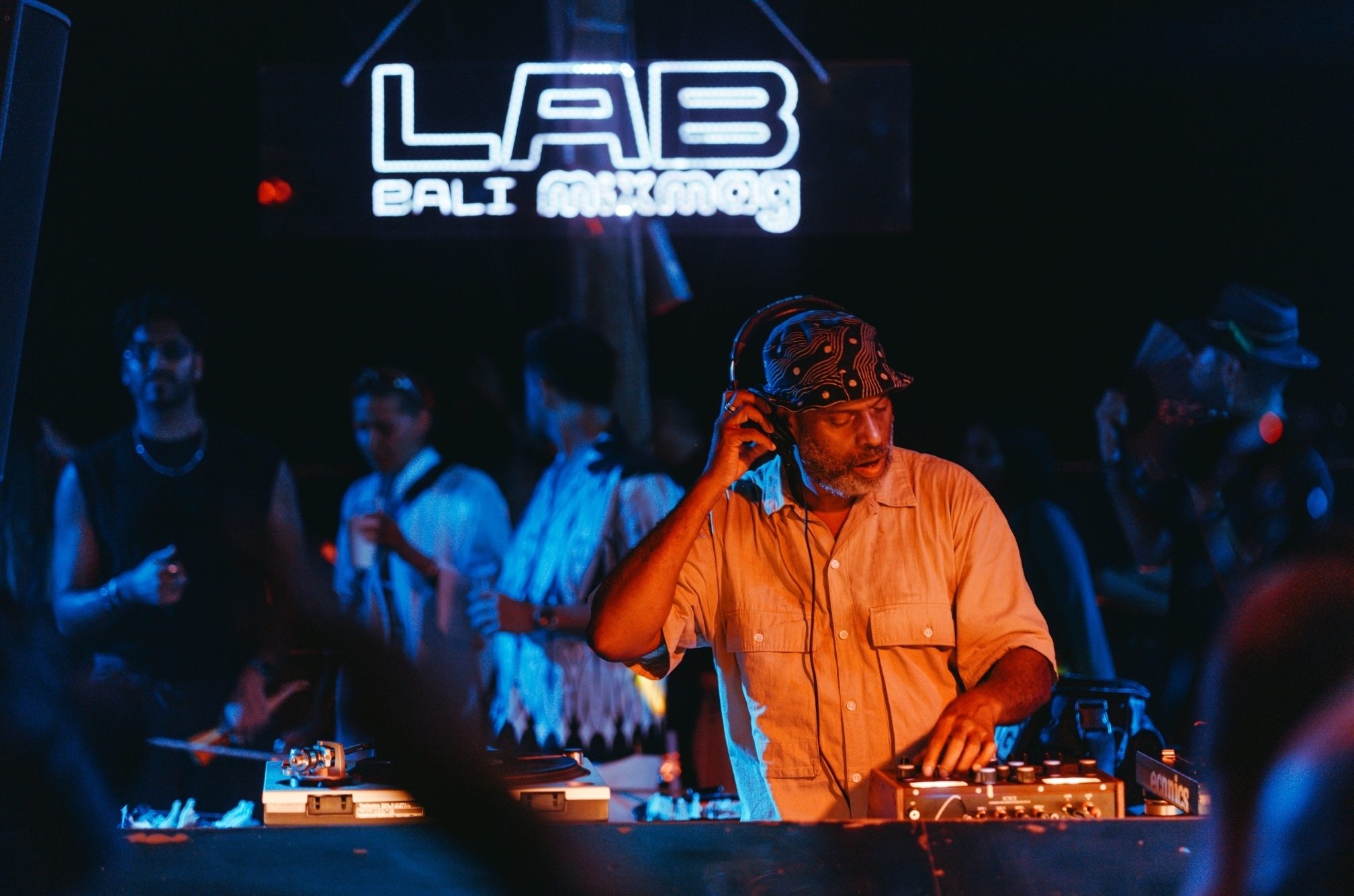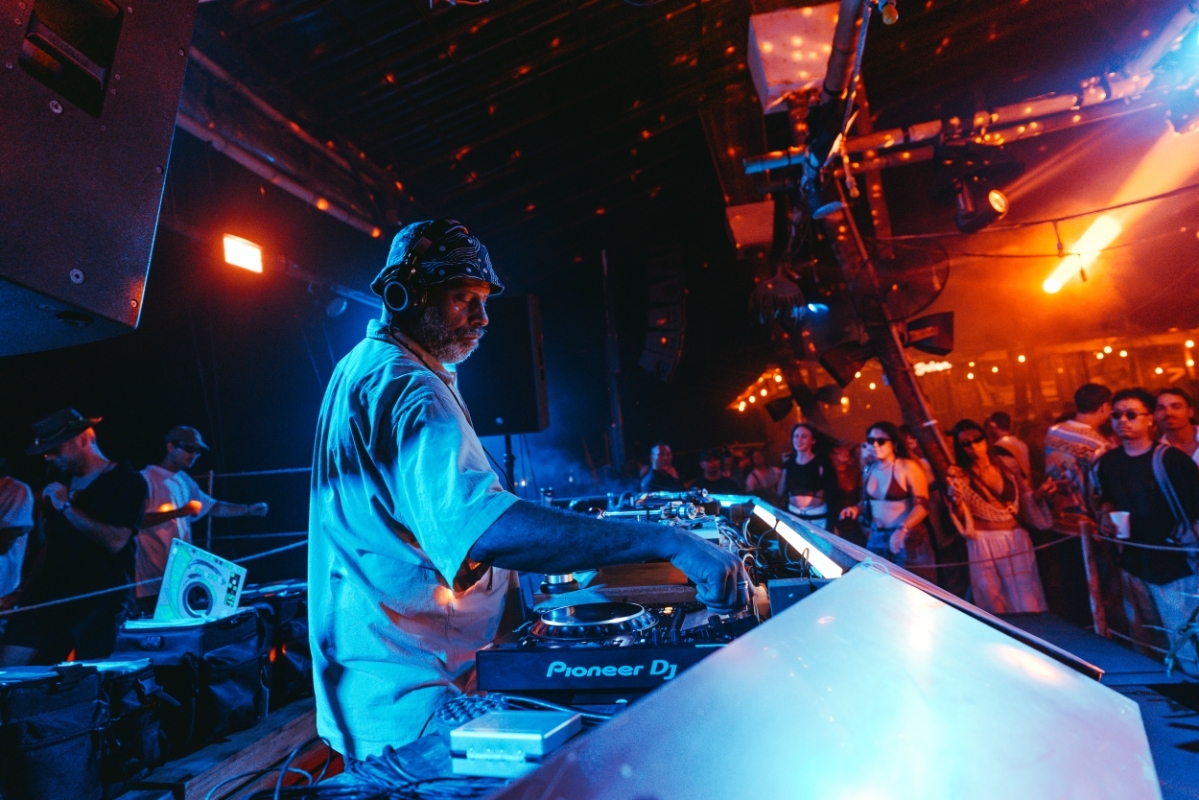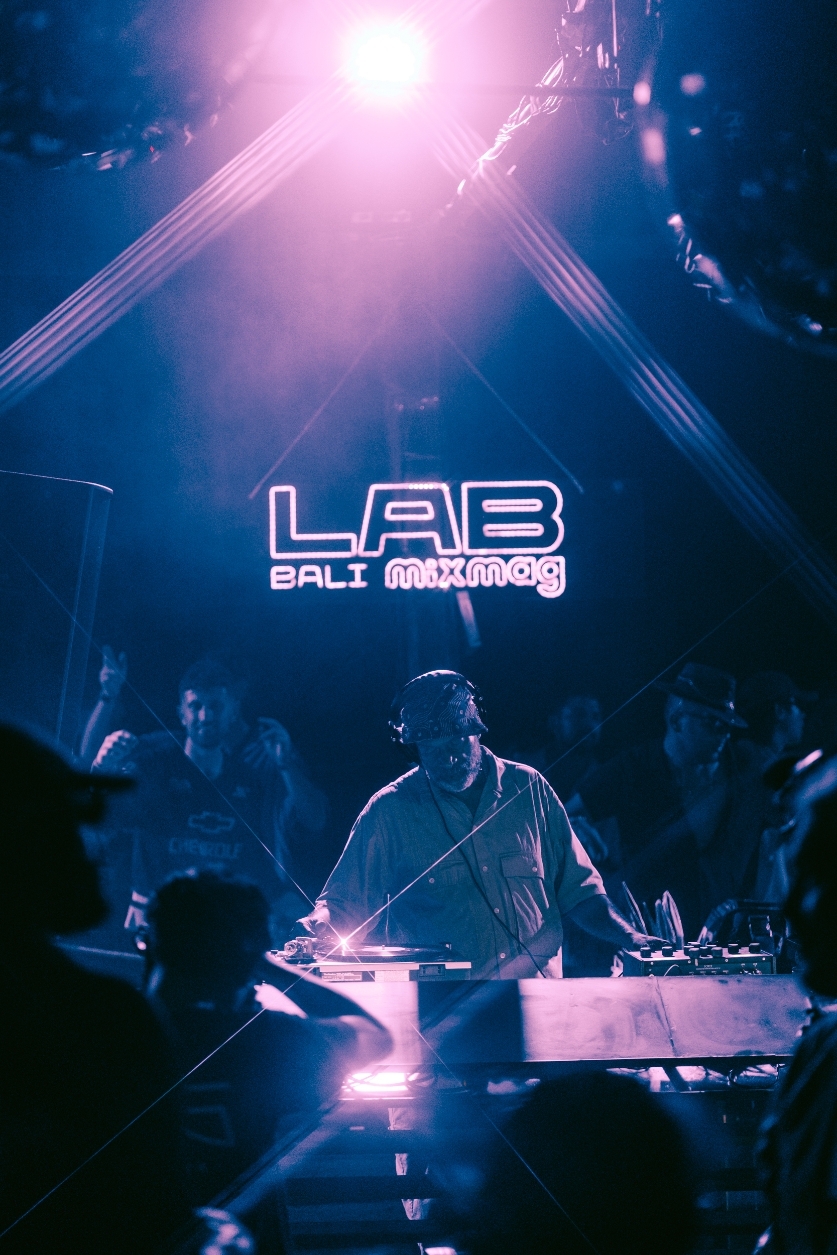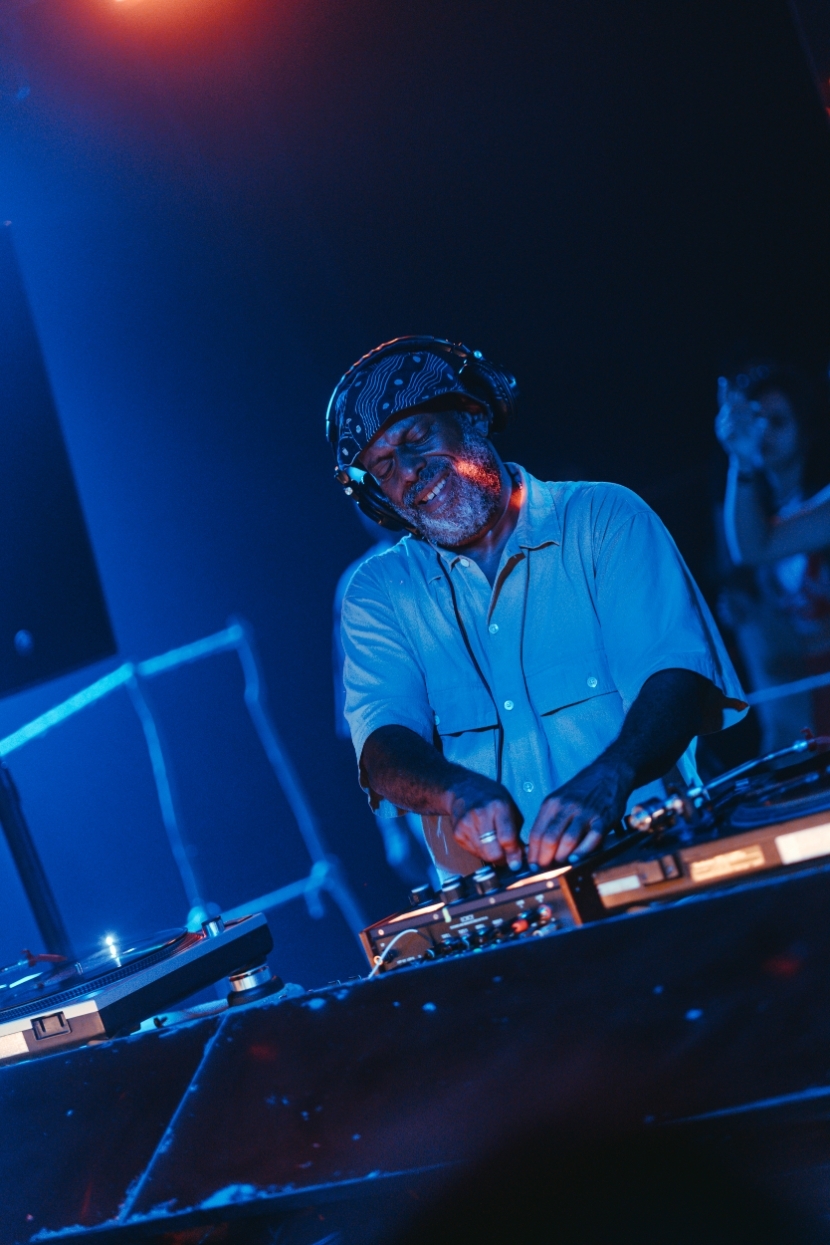 COMMENT
COMMENT
“Jazz is the teacher”: Theo Parrish on tradition, records & the roots of dance music
The Detroit innovator considers the balance between past & future, along with how truth, people & physical sound shape his philosophy today.
On Saturday, September 13, The Mixmag Lab landed on the shores of Echo Beach, Bali, to have its first-ever edition at the seaside venue, La Brisa.
Adorned with glittering disco balls and warm, wooden accents, the space radiated intimacy and charm. An atmosphere perfectly suited to host one of house music’s true cornerstones: Theo Parrish.
Widely regarded as one of the godfathers of house music, Parrish has spent decades redefining the sound and spirit of the genre, blending deep-rooted jazz, soul, funk, and raw rhythm into something both timeless and radical.
The night itself was one for the books (for more reasons than one).
Rok Riley infused the dancefloor with soulful depth from Boorloo’s underground, while Munir unearthed golden cuts of Indonesian disco and funk.
Then came Parrish’s highly anticipated three-hour odyssey; a journey that ultimately stretched an extra 30 minutes, lifting the crowd into a rare state of collective transcendence.
Before taking the decks, the house music icon shared some timeless words of wisdom exclusively to Mixmag Asia and Mixmag ANZ.
Read on for some rare wisdom from one of the genre’s most enduring figures.

Q: Your career has been long, and when it comes to some of the more influential figures in DJing, jazz, house, and dance music, you’re one of a select few who are still regularly playing. What keeps you coming back to play all these years on?
TP: It depends on what you consider a career. The decision to play music for people tends to be much more complicated than that. It goes from a hobby to a calling. It goes from what you do to who you are.
Q: What elements of that original approach to DJing and music remain today, do you think?
TP: I think the youth are learning the value of the original methodology of the form, without being awestruck with the tools of commodification…a proper DJ or selector, in my opinion, can master and display the collection of songs that they physically own.
That collection, care mastery and sharing of what you can physically quantify completes the circle. People made the songs, and then it took a long process for it to be transformed from the ethereal to the physical.
To me, until songs take up physical space, they are more or less theoretical.

Q: How would you describe what that ‘approach’ or ‘essence’ truly means, in your opinion?
TP: It all depends on your intention, and that’s the beautiful part.
Q: What role does jazz play in your approach to creating and producing music today?
TP: People. Jazz is the teacher.
Q: How do you strike the balance between modern and more traditional approaches to music in the work you make today?
TP: How do I reconcile the past and the future? With now!
Q: Is honouring the roots of dance music and pushing musical boundaries able to exist in tandem? Or are they two opposing ideas?
TP: If you show respect, you never owe respect. Let’s start by telling the truth. It’s all on the dates of the records. Who did what and when…

Q: Which cities and venues around the world do you think are doing the best job of both respecting and building upon dance music’s foundational culture?
TP: I would say part of the equation is promotion, but without exceptional talent, culture becomes eroded. This isn't a question of modernity and the way attention is built. It’s a qualitative question.
Q: How do you think that Bali, and Asia more broadly, fits into that kind of modern culture?
TP: As dance music reaches the Balinese region, the obvious question is not whether this music is from here; it’s how to decide what paths to follow: culture or the vehicles that are tasked with carrying culture? The food itself or the wrapper it came in?

Q: Dance music media has become a massive part of the way that music is shared and heard, the careers of artists are made, festivals are promoted, and the list goes on. What do you think publications like Mixmag can be doing to leave a positive impact on the culture that they rely on?
TP: I’m sceptical about theories developed about the artistry of music making, without accuracy or knowledge by those talking. The problem with music journalism is that it requires no qualification to comment on whatever new hype is. Long after the opinions come and go, music is left.
Q: What kind of message do you think ‘emerging’ artists, promoters and labels need to hear in 2025?
TP: Tony Allen said: N.E.P. A. (‘Never Expect Power Always’).

Images via SHŌ Media.


